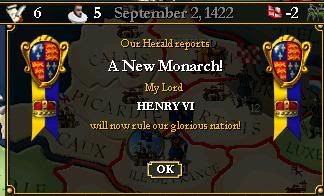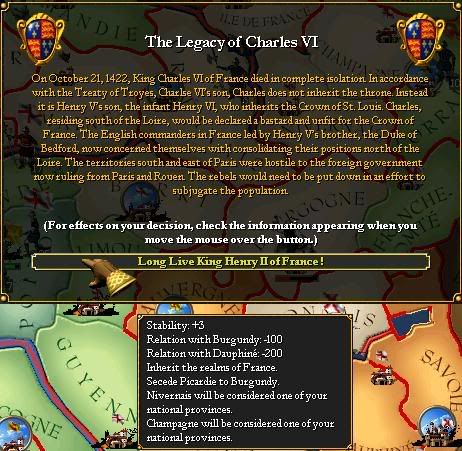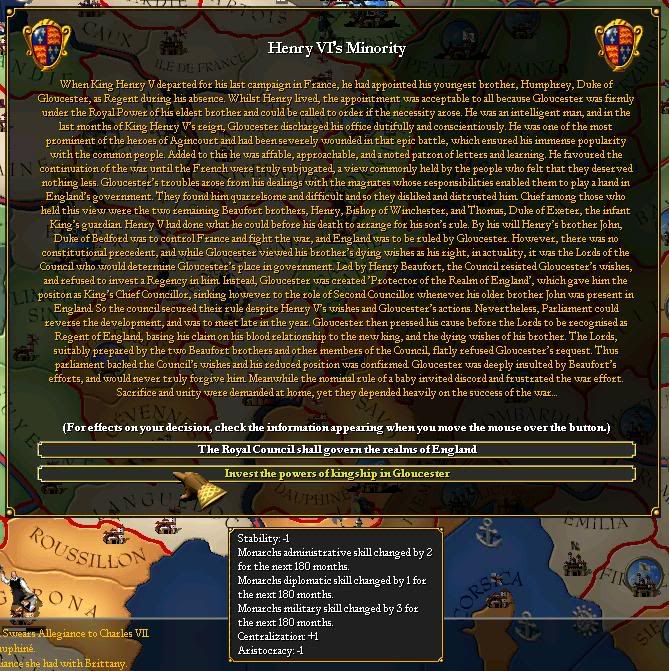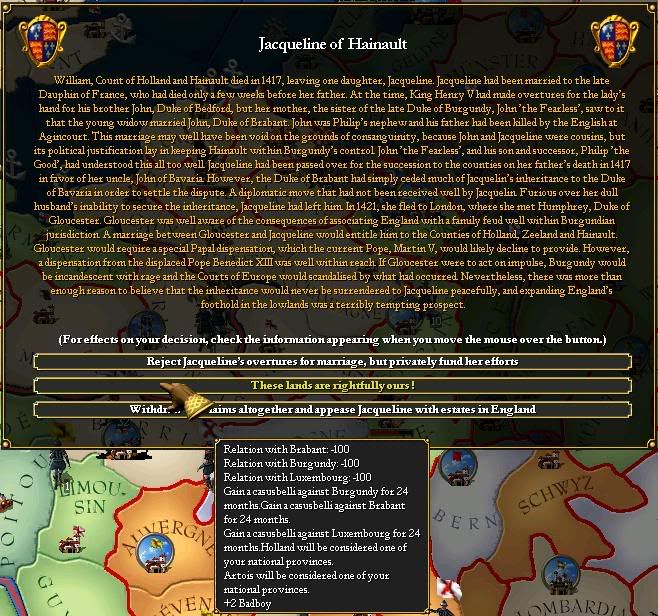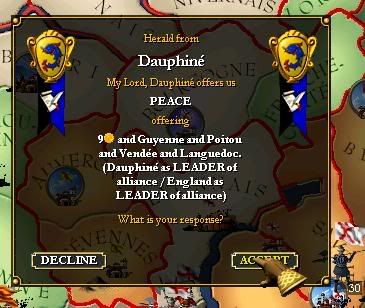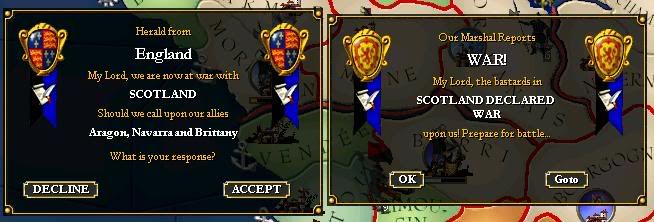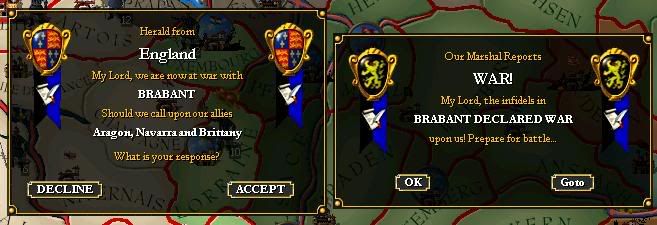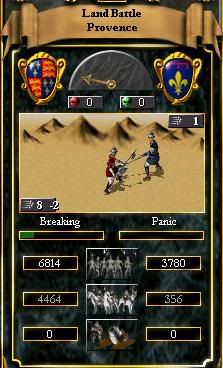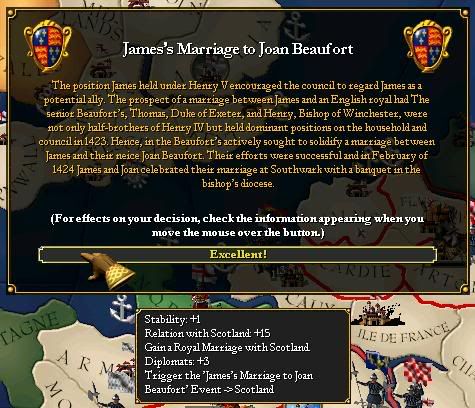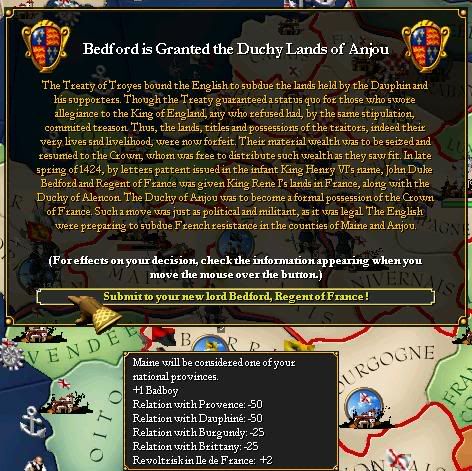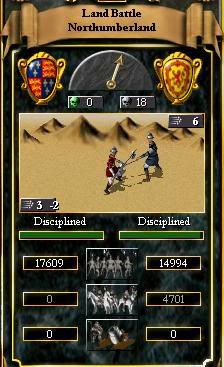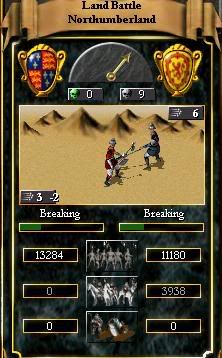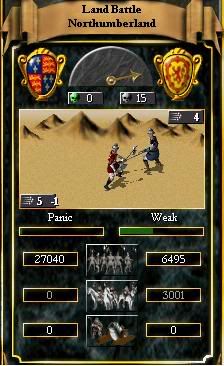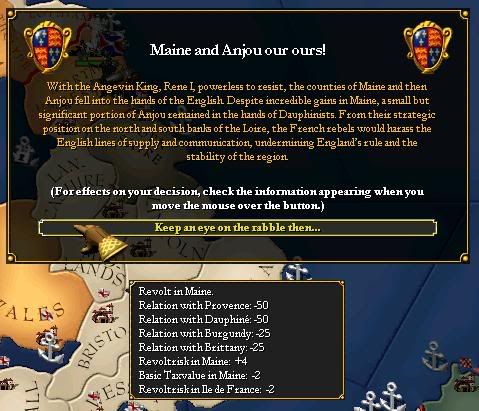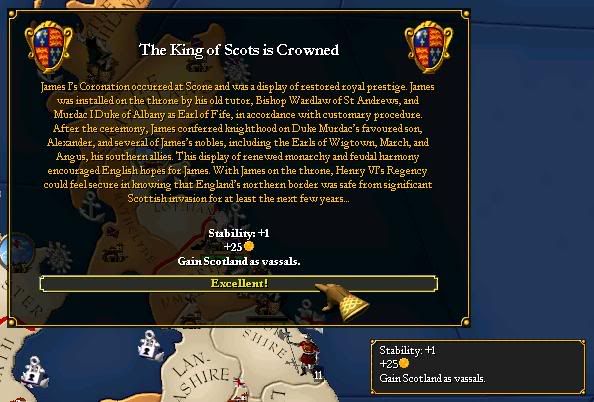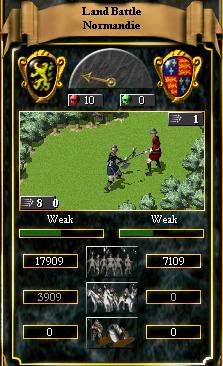In the Footsteps of Magna Charta - Chapter X
Chapter X
English province of Wessex
July, Year of our Lord Fourteen Twenty-three
‘Joan, my child. Hear me out as I now speak of your future.’
‘Yes, Father. I will listen and obey.’
They were gathered in the private office of Henry Beaufort in the Winchester Cathedral. The small room was filled up by Henry, Bishop of Winchester, Thomas of Beaufort, the Duke of Exeter, and their as of yet, unmarried niece Joan of Beaufort, the daughter of their brother John Beaufort. With them were only their personal aides, whom they could trust not to speak to anyone what they heard in their masters’ private conversations.
‘Joan, my child,’ Henry repeated. ‘As you must know, England is in a position of war. While I have no lack of faith in our capabilities to defend ourselves, I do feel that our leadership could be rearranged in order for England to truly blossom. This is why I have called for you. You are of ripe age, Joan, you are truly a beautiful creature, blessed by the Lord’s hand. This is to our advantage, should you feel inclined to serve the English Crown.’
‘Father, I will do anything that is asked of me, should it be from the King of England or the King of Heaven. As long as I am a tool for England’s prosperity, I will endure any hardship.’
Henry lay his hand on the girl’s shoulder as to comfort her in a priestly way, as he had done a hundred times, perhaps a thousand times before to other ignorant fools. Just as he controlled those mundane creatures by saying it was the Lord’s will, he would now control his niece to do his bidding.
‘That is well, child. That is well. Then you will do what I tell you now, for it will save England a costly war, and though the current unworthy leaders of our nation will gain from it, I cannot allow England to fall. It is for the greater good that this happens.’
Thomas nodded silently in agreement and looked at Joan. She seemed full of resolve. It grieved him, but he knew that what was to come had to be done. There was no other way. He felt the same as his brother. Bedford would gain from what was about to happen and it filled him with anger, but he had to give him that much. To serve England was a greater goal, and if things turned out right, then perhaps even a change of regent could be made. Perhaps…
Provence province of Maine, under siege by the English
January, Year of our Lord Fourteen Twenty-four
Saying that Bedford was pleased was a grave understatement. Having received word from the south that a garrison-commander by the name of Winston had successfully not only held back the French troops, but also pursued them and held them back on their own territory, Bedford’s position was secure and he revelled in the thought that the war with Provence was soon over. That meant he could either help Winter with the defence against Brabant, or leave it to the Earl to deal with by himself, allowing Bedford to travel to Northumberland to organise the war with the Scots.
The King had been moved from Paris to London together with his mother, now being old enough to be travelling in the cold of winter. He was one and a half-years-old and it would not be long before he would be taught to fence, ride, and shoot the bow. Languages like English, French, and Spanish, administration, warfare, economy, geography, was also going to be introduced throughout his childhood. All the skills that were necessary for a king. Bedford was ripped from his daydreaming of his own training during childhood when a messenger entered his tent.
‘I carry word from the lord Duke Exeter, lord Sire.’
Bedford grabbed the leather package, oiled to be water resistant, with a short, leave, to the messenger. As the servant left the tent, Bedford opened the package and opened the rolled-up scroll.
To the Duke of Bedford, John of Lancaster, Regent of France
By this letter, Parliament has deemed it unnecessary for the Duke Bedford or the Earl Winter to return to England, should their intent be the war with Scotland. Issues are worked upon for understanding with this country to end the war. Parliament is more concerned with the Brabantian frontier and orders the Duke Bedford and Earl Winter to enforce English presence in the above mentioned areas.
Parliament
Secretary, lord Duke Winsbury
Bedford stood quiet for some time. He had to let the words sink into his mind before he could even think of the illogic of it all. If a message could be less informative than this, he would have to see it with his own eyes. Solve the issues with Scotland. He had no objections with that, but how? How are the issues worked with, and how will they be solved to benefit both countries? And why were Winter and he not “allowed” to return to England. And Gloucester, how did he react to this? As Regent of England he must have had a voice in the matter. And if he had, if he was the one who was going to work out the issues, why had he not informed Bedford of it? The questions overwhelmed Bedford to the point where he had to sit down. After becoming organised, he quickly called for the clerk to write down his own dictated message.
Scots province of Lothian
February, Year of our Lord Fourteen Twenty-four
‘Do you, James Stewart, King of Scotland, son of Robert III, son of Robert II, take Joan Beaufort, daughter of John Beaufort, son of John of Lancaster, in the presence of God, to be your wife from this day forth. To have and to hold her, to cherish, to comfort, to love, and be her faithful, in sickness or in health, for better or for worse, for richer, for poorer, until death do you apart?’
‘I do.’
‘And do you, Joan Beaufort, daughter of John Beaufort, son of John of Lancaster, take James Stewart, King of Scotland, son of Robert III, son of Robert II, in the presence of God, to be your husband from this day forth. To have and to hold him, to cherish, to comfort, to love, and be him faithful, in sickness or in health, for better or for worse, for richer, for poorer, until death do you apart?’
‘I do.’
‘Then I hereby pronounce you man and wife. You may kiss the bride.’
With the marriage of James and Joan, the Beaufort brothers thought they could have a
chance to claim the English throne. They were not completely correct in their assumption
With the marriage of James I and Joan Beaufort, the Beaufort brothers thought that they had ended the war with Scotland, and thus gained an ally in the north. Henry and Thomas’s plan had been a simple one. If they could provide a wife as a means for peace, they could also open up a dialogue with the King of Scotland in private. With a Scots ally, they could use the opportunity to regain the throne of England while Bedford and Winter were away. The infant king had been moved to London, which suited the brothers perfectly. If they could make James start a second war when England was more prepared, they could distract Parliament and hopefully Henry’s guardians enough to kill him. Once Henry was dead, the Beaufort would claim the throne as Bedford was not present and make a truce with Scotland. They would appear as the saviours of England from the Scots threat. And if somebody protested, they would be easily quieted down. Such was the way of the Beaufort.
However, despite the Beaufort’s efforts, and to their great surprise and disappointment, James did not end the war. Indeed, he continued, ignoring the pleadings from his recently married wife. His reason for war was great, and could not be stilled just because of the simple act of a marriage. Marriage was held as an important tradition of the Church in Scotland, however, the office of King was even greater, and the item of Scots Kingship was not even possessed by the Scots! This could not be. James had made a promise he could not break. England would suffer until the Stone of Scone was returned, else they would feel the wrath of the Highlanders.
The Wars of the Low Countries
The situation in the Low Countries, consisting mainly of the duchies of Burgundy, Brabant, and Luxembourg, was and had been solid for a long time until Fourteen Twenty. The involvement of the English had made the steady and not so flexible balance of power between the three nations fluctuate into chaos. When William IV had died and his daughter Jacqueline had claimed the provinces of her homeland as hers in favour for the English, many Dukes in the Low Countries went mad with rage. A woman to inherit was very unusual, in fact, it had been rare to even hear of such a thing, and so the lords had a right to be angry. But with the Countess’ marriage the lands would legally belong to her husband, and in this case that was the uncle of the King of England, Humphrey of Gloucester. However, during the time of Jacqueline’s flight from the Low Countries until her marriage two years later, the Dukes of Brabant and Burgundy both had claimed the provinces of Artois and Holland. While Brabant held Artois, Burgundy held Holland. When England claimed that both provinces belonged to England by law, it was only apparent that the Dukes would find themselves insulted. To add, the Duke of Luxembourg had formerly held the neighbour province of Zeeland, and was equally eager to give his voice for the rightful claim of the Low Countries in favour of Luxembourg.
When war started between the English and Scots in the early Fourteen Twenties, the Duke of Brabant thought that it would be a good time to enforce his claim on Artois and attacked England. If he could capture the infant king, then the English would have no choice but to renounce their claim to both provinces, and perhaps even pay a ransom for their king. However, his claim of the provinces, and tries to take Holland by force made his neighbour the Duke of Burgundy enraged and war broke out between them. Torn between his two enemies of England and Burgundy, the Duke of Brabant focused his forces against England to try to gain a quick peace with them, and thought he could deal with Burgundy afterwards.
Seeing a good chance, the Duke of Luxembourg also declared war upon England with the idea of connecting his Austrian provinces in the south to his northern ones by taking England’s eastern provinces in France. With two nations to the north to tangle with, England had still not yet seen the end of trouble they would have with the duchies of the Low Countries.
Provence province of Maine, controlled by the English
April, Year of our Lord Fourteen Twenty-four
Because of Bedford’s outstanding tactics in Maine, a sort of revolution hit the French province and made it switch sides to England’s favour. Throughout his life, Bedford was reluctant to tell anybody his ways, and only Winter was the only person he would tell how he had proceeded. To all else, it remained a mystery, however, the results did not lie. Maine had become English and Provence had lost its grip in northern France. With Maine, England now had a safe way from its northern to its southern French provinces. They needed no longer go by ship to reach Normandie or the other northern port-provinces.
The news of Luxembourg’s actions did not startle Bedford. He had now figured out the situation in the north and he was more concerned with Brabant’s and Burgundy’s claims to the provinces of Artois and Holland, the very same that Gloucester called for through his wife Jacqueline. He thought of the marriage, how Gloucester had almost forcefully demanded that he marry her. It seemed little like love, though it was there. Bedford recognised the glint in Gloucester’s eyes, the very same that Henry had had when there was something to be gained. And the Low Countries were certainly a prize to be gained. Bedford just hoped that they had not taken more than they could swallow. With the current wars the English military was already overstretched. At least now, with Maine’s fall, and the assumed peace that would probably follow with Provence, the south would be clear and its armies could be reassigned north. But conscripts in France were thin and with the high taxes in England the peasantry would be rioting to the news of a creation of a new army. It was a dire situation indeed.
Luxembourg took the chance to declare war when England was busy fighting both the Scots and Dutch Brabant
After Maine’s fall, Bedford made himself the Duke of Anjou, in recognition of his victory, and Gloucester, having no real power in the matter, agreed on Bedford’s new possession, his words being just formalities. Still, he held nothing against Bedford for doing it. Indeed, he praised him for his work and felt that it was Bedford’s righteous reward for the seemingly bloodless takeover. Nevertheless, trouble would plague them both in the following months.
After Maine's fall, Bedford became the new Duke of Anjou and Maine
With the passive actions of England, James I decided that if the English did not act, Scotland would. Massing an army of fifteen thousand men and five thousand horses, James crossed the border into Northumberland and engaged the stationed English army consisting of only seventeen thousand men. Because of the surprise attack by James, the English were caught unaware and were defeated in a series of battles, all in the favour of James. Not even with the reinforcements sent by Parliament when the news spread of the Scots attack, could the English hold their position and in the end, the whole Northern Army had to retreat to the south, taking up new positions in Yorkshire.
To England's surprise, the Scots managed to defeat the English army in Northumberland.
Some even started to wonder if a second William Wallace had emerged
Meanwhile, a second revolt in Maine occurred, only weeks after Bedford had left the province to meet with Winter in Normandie. Rebel Frenchmen ravaged the countryside, killing their own brethren and plundered what they could take, all in the name of France. Those who had not opposed the English were seen as traitors and were executed, while the few English soldiers who were stationed to remain as a reminder of English dominance, were brutally tortured. It would take long before the English truly enforced their presence in Maine, and until then, the rebels were left alone, forcing the populace to fend for themselves.
As the English left Maine, there was no protection from French rebels
